As IranWire has reported, hundreds of Iranians have sustained severe eye injuries after being hit by pellets, tear gas canisters, paintball bullets or other projectiles used by security forces amid a bloody crackdown on mainly peaceful demonstrations. Doctors say that, as of now, at least 580 protesters have lost one or both eyes in Tehran and in Kurdistan alone. But the actual numbers across the country are much higher. The report concluded that such actions by the security forces could constitute a “crime against humanity,” as defined by Article 7 of the Rome Statute.
IranWire has explored this question more deeply in an interview with Professor Payam Akhavan, a prominent human rights lawyer, special advisor to the Prosecutor of the International Criminal Court and a former member of the Office of the Prosecutor of the International Criminal Tribunal for the Former Yugoslavia.
IranWire is aware of more than 50 serious eye injuries sustained by protestors and bystanders over the past five months. With the help of independent ophthalmologists, we have reviewed the medical records of around a dozen individuals and compiled a comprehensive medical report.
In the series of reports “Blinding as a Weapon,” IranWire presents the victims’ stories told in their own words. Some have posted their stories, along with their names and pictures, on social media. Others, whose real names shall not be disclosed to protect their safety, have told their stories to IranWire, which can make their identities and medical records available to international legal authorities and the United Nations Special Rapporteur on the situation of human rights in the Islamic Republic of Iran.
This is the story of Firooz Mirani, a young singer from western Kermanshah province who took to the streets on the same night when Iran was playing against the United States at the 2022 World Cup. Security forces chased him in a dark alley and robbed him of one eye. His other eye is so damaged that he remains under treatment, while his face, neck and chest are still filled with pellets.
***
“It has been close to six months since the last day I was able to see the world clearly. During this time my eyes, my window to the world, went dark. The pain of losing my right eye and of most of my eyesight in my left eye is indescribable. Words are unable to tell my story.”
Firooz Mirani, a singer and a native of Kermanshah province, was shot on November 29, 2022, on the same night when Irani’s National Football Team was playing against the United States at the World Cup in Qatar. Both his eyes sustained serious injuries. He lost one eye forever and the other eye cannot see much.
Words might not be able to describe his pain but, in a short passage on Instagram, he tells us a lot about himself: “Pain is not a stranger to me. I have spent all my life in poverty, deprivation and discrimination. Since childhood, I have loved to sing in my mother tongue [Kurdish] in harmony with Kurdistan’s nature, but school was a place which alienated me from this love so I escaped school. This escape dragged me into becoming a laborer in Tehran and a kolbar [a porter who carries goods on his back across the border] in Kurdistan…My body might have been tired and exhausted, but I had this hope in my heart that some day my melodies would flow. This was until these agents of tyranny targeted my eyes.”
Mirani doesn’t only write about his own story but the life of a group of Iranians in the western Iranian provinces who are denied education in their mother tongue, are forced into poverty and deprivation, work as kolbars and sometimes lose their lives by doing this activity. Of course, they are also among citizens who have kept the flames of protests and strikes alive.
The night he was shot, Mirani could not sleep the way he always did. Nevertheless, a video shows him sitting in a car with his eyes bandaged, singing his heart out for his motherland.
Mirani was born in 1994 to a large family. His mother has suffered from the loss of five children. One brother stepped on a landmine and died. A second brother was a member of the Islamic Revolutionary Guard Corps for 17 years and what happened to him is unknown. A certificate issued for his wife and children described him by a vague term that can mean martyr, disabled or missing in action. The body was not handed to the family so they could not organize a proper burial ceremony for him. A third brother died a few years after a liver transplantation, the fourth passed away when he fell from a tree and a fifth died when he was only four.
In another Instagram post, Mirani writes: “I am Firooz, the son of Iran, the son of a suffering and grieving mother, a mother who has grieved after the death of several of her children and, little by little, has fallen apart. I say this because if I, too, had lost my life for my motherland, perhaps she would have shed more tears and her eyes would have lost more vision.”
Shot From Close Range
The night when Iran was playing against the US many people came to the streets across the country to protest, just like Mirani and his friends. Chants were getting louder when security forces dispersed the crowd by shooting and by firing teargas canisters.
Mirani and less than 20 other protesters were standing at the entrance to an alley. When the security forces started shooting at them, the group started running away and the security agents chased them. Mirani entered the alley that had a flight of steps going down. When he reached the 15th step he wondered why he was escaping because he had done nothing wrong. As he turned his head he suddenly saw a man in a Kurish costume who pulled the trigger of his weapon. Mirani’s face and upper torso were filled with pellets. The armed man left and Mirani’s friends came to help him. He could not see anything until his left eye recovered some vision after a few minutes.
It was past midnight when they knocked on several doors to seek shelter. One door finally opened. When Mirani’s relatives and friends arrived the man was in excruciating pain.
Five Times on the Operating Table
The same night Mirani was taken to Khomeini Hospital in Kermanshah. A nurse advised the wounded to seek treatment in a better hospital.
It was dawn when the group set out for Tehran. In Farabi Hospital, Mirani was taken to the operating room after tests and a CAT scan.
The doctors were hopeful that his left eye could be saved. A week after the first surgery, doctors did laser surgery on that eye, but it was still hemorrhaging and its vision often became blurred. Mirani visited different eye doctors because he wanted to be assured that, although he had lost his right eye, his left eye would recover.
Then he underwent another surgery. The new doctor confirmed that the right eye was lost forever and said the left one had lost its vision because of the hemorrhage. After the surgery, vision returned to the eye. A week later Mirani was able to take a bath but his left eye again lost its vision and the hemorrhage continued. However, his eyesight returned after a week.
But a few days later, Mirani suddenly saw something like a thunderstorm in his left eye, and a dark spot completely blocked his vision within 24 hours. He went to a hospital in Kermanshah and they found out that the retina was completely detached. Once again, the patient was sent to the operating room.
The doctors said Mirani must sleep on his belly for a week to allow the silicone oil that was injected into the eye to help the retina reattach itself. He was so afraid that he slept on his belly for 21 days. After 40 days he was able to see a little bit and the doctor prescribed strong glasses.
Four and a half months have passed since that surgery. Mirani must wait for another month and a half for the silicon oil to be extracted from his left eye. He, his family and friends are hopeful that vision will return to the eye. His right eye, however, went dark forever and a pellet is still lodged in the eyeball.
The treatment and surgeries have cost him close to 250 million tomans so far.
Mirani has managed to remove some of the pellets from his neck, but others are still lodged in his body.
A Conscience at Peace
“My conscience always behaved in a strange way that gave me pain and made me feel uncomfortable,” he writes on his Instagram. “But for several months now I no longer have the same unhappy feeling. I feel serene and my conscience is at peace…Were it not because of my respect for the blood of our martyrs…were it not because of the grieving mothers and this grieving land, I would definitely be singing the merriest tunes right now.”
Then the song that we hear over images of Mirani is cut off by the sound of gunfire, and his smiling face is replaced by his injured body and covered eyes.
visit the accountability section
In this section of Iran Wire, you can contact the officials and launch your campaign for various problems




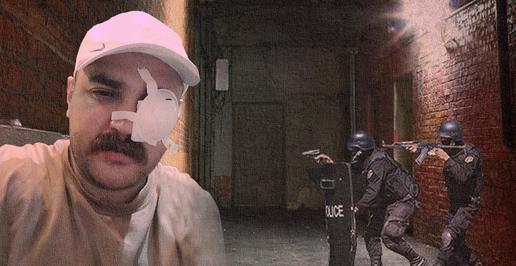

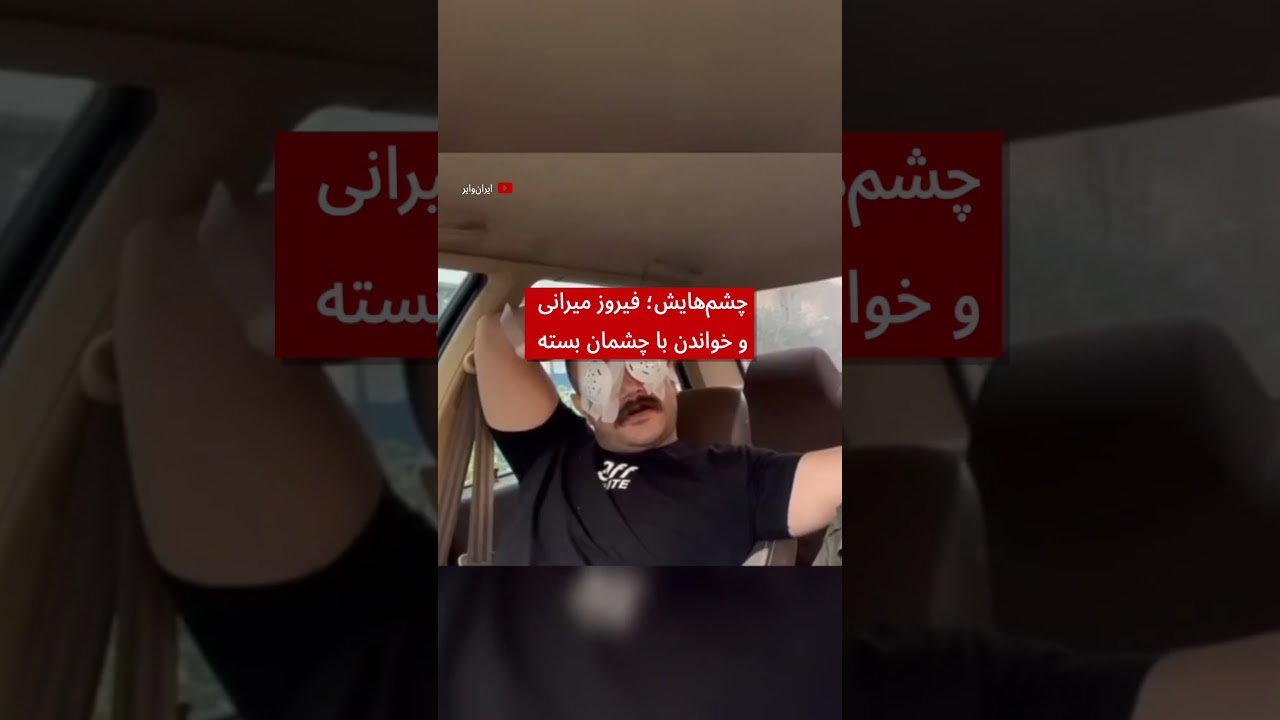
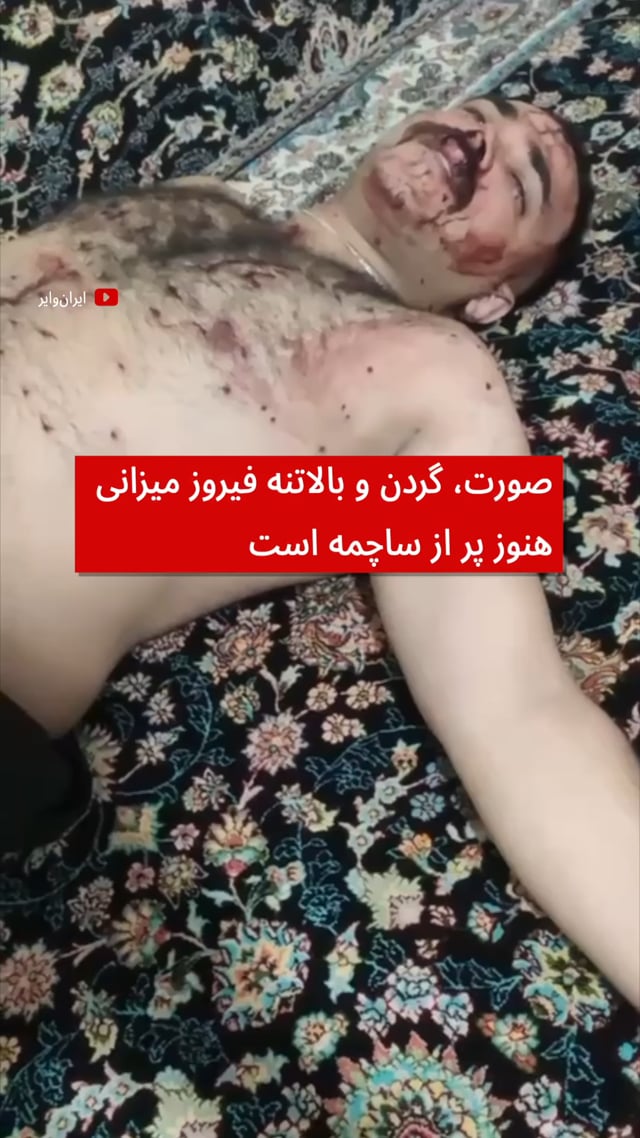





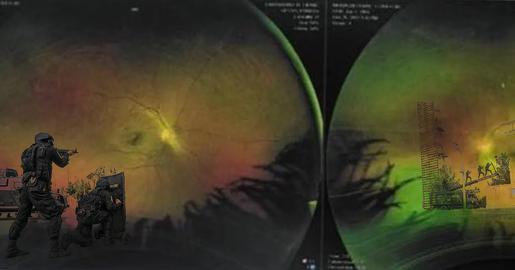
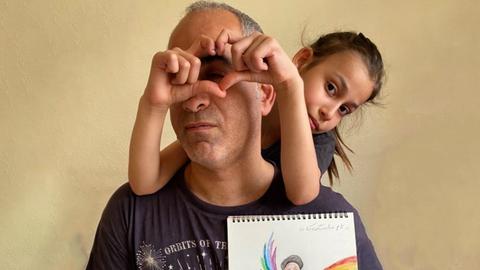
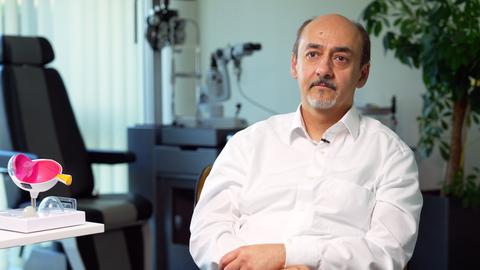



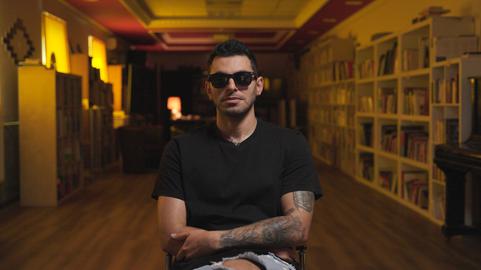


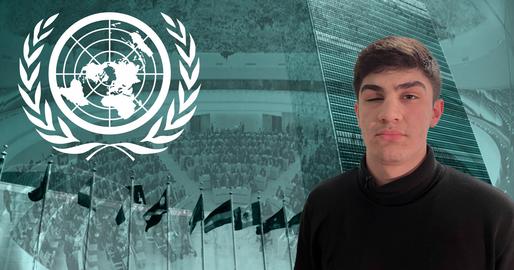



comments